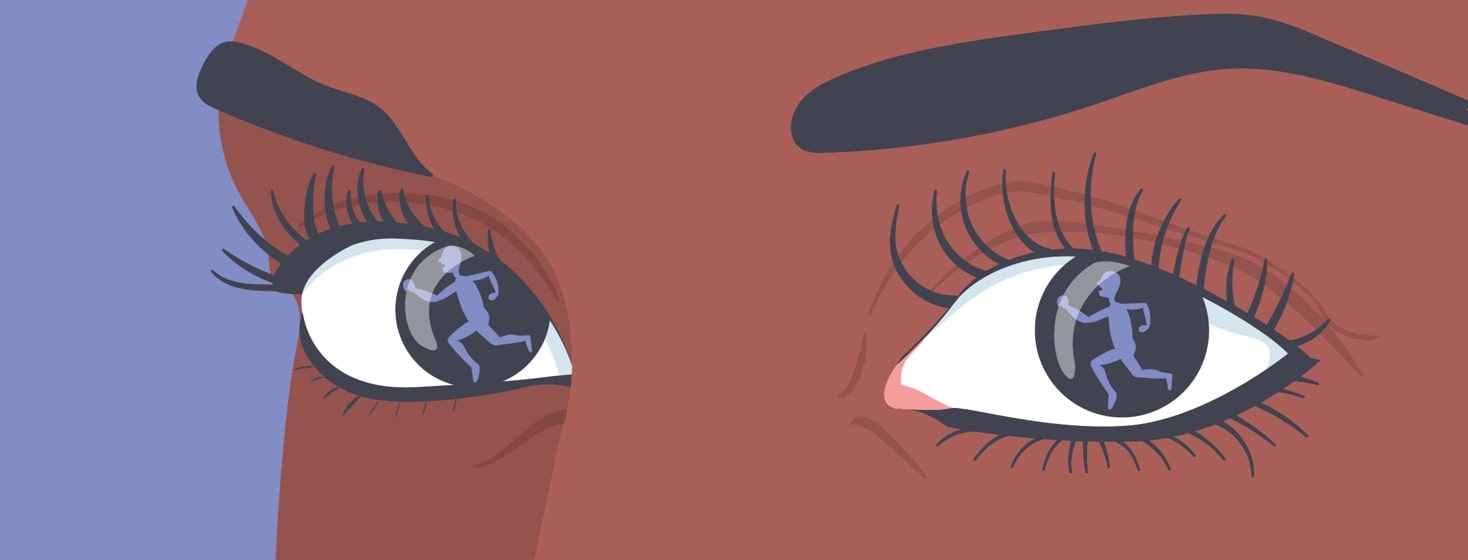Nighttime Worry, Insomnia, and Skin Cancer: Part 1
Reviewed by: HU Medical Review Board | Last updated: April 2023
The National Cancer Institute (NCI) estimates that between a third and half of all cancer patients suffer from insomnia. Not only this, but when someone goes into cancer remission, their sleeplessness may still affect them.1
Causes for insomnia for tose living with cancer
Insomnia in cancer patients can be traced to2:
- The side effects of treatment (chemotherapy, radiation, prescription drugs, withdrawal following treatment)
- Poor sleep hygiene (poor sleeping environments, long daytime napping, inconsistent sleep-wake schedule, nighttime exposure to blue-spectrum light)
However, an ever-present, anxiety is another chief reason why people with cancer struggle to get sleep. Skin cancer, in particular, can lead to anxiety-induced sleeplessness.
Connecting the dots: anxiety, insomnia, and skin cancer
Evidence gathered by the NCI1 suggests that insomnia is the most common sleep disturbance in those with cancer, frequently a bigger annoyance than the physical and/or emotional factors related to cancer and/or cancer treatment. It isn’t surprising that sleepless nights follow a new cancer diagnosis.
Anxiety is considered a normal psychological response to a cancer diagnosis, its treatment, and the life-altering challenges that come with it.1 Still, it makes us vulnerable to worrying at night when there aren’t daytime distractions to prevent us from the racing thoughts that are sure to follow.
Special concerns for those with skin cancer
Non-melanoma skin cancer (NMSC) is the most common cancer worldwide. Some research shows that almost 1 in 5 NMSC patients have significant levels of emotional distress and may have trouble adjusting to the disease and its treatment.3
Scanxiety
Even before the diagnosis, screening can bring lots of anxiety. In fact, there’s a term for it: scanxiety. Fear of the unknown (Will it be cancer? If it is cancer, is it a death sentence? (as well as fear of treatment (Will I have a big scar on my face? Will I survive chemo?) are two of many reasons why people don’t go in for scans.
Circadian disruption
The skin has its own circadian functions, which help us to know when it is and isn't time to sleep. Cancer (especially its inflammatory nature) can disrupt these functions. Throw in a bad case of insomnia, and you can further disturb the sleep-wake cycle through a series of changes in the inflammation of the body.4
Visibility
By its very nature, skin cancer typically (though not always) occurs in areas where the skin is exposed. That makes it a visible reminder of its presence, either as an untreated lesion or one which has been treated and has left scarring.
Visible tumors or scarring can negatively impact self-esteem, confidence in social situations, and workplace anxiety.4 Feeling “disfigured” by skin cancer, especially on the face, may also increase the risks for substance abuse, post traumatic stress, and poorer quality of life.4
Uncertainty
For some, living with visible evidence of skin cancer remission is a badge of honor. For others, it causes fear that it will return. It’s not an unfounded fear: a skin cancer diagnosis ups one’s risk for recurrences. Regular skin checks become a new, possibly disruptive, reality for those in remission. In Part 2 next week, I’ll review solutions for managing anxiety and insomnia for people with skin cancer.

Join the conversation